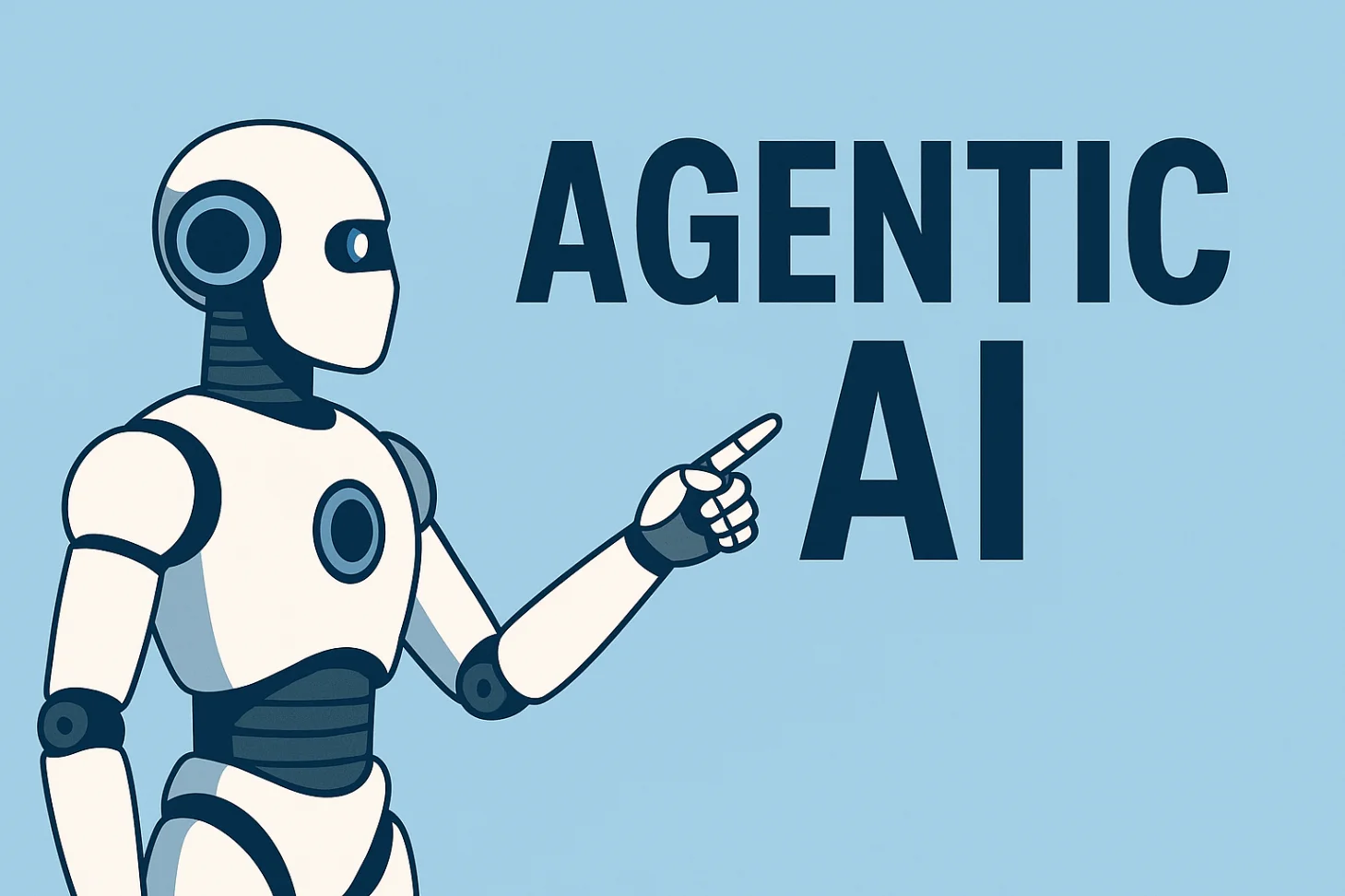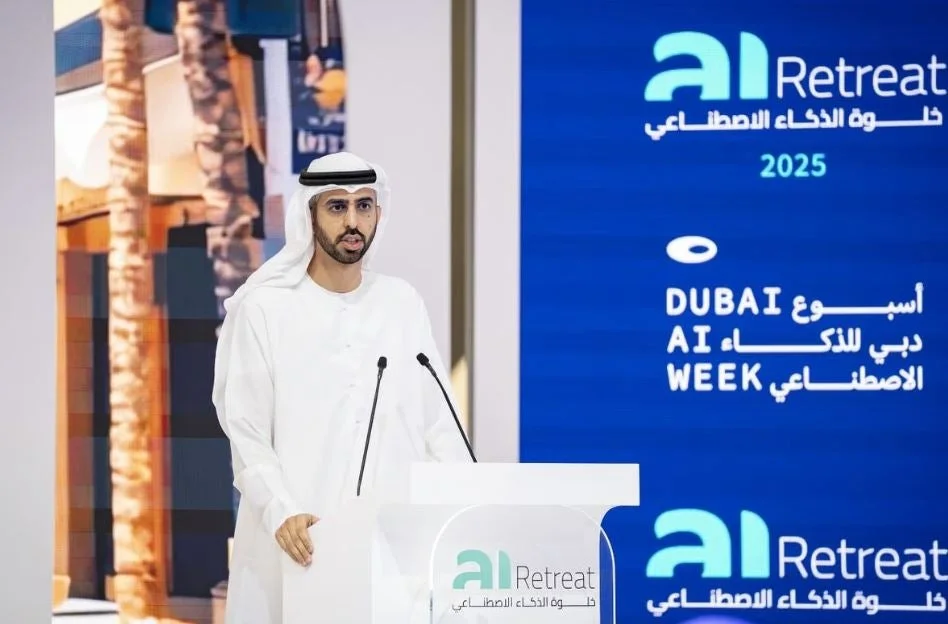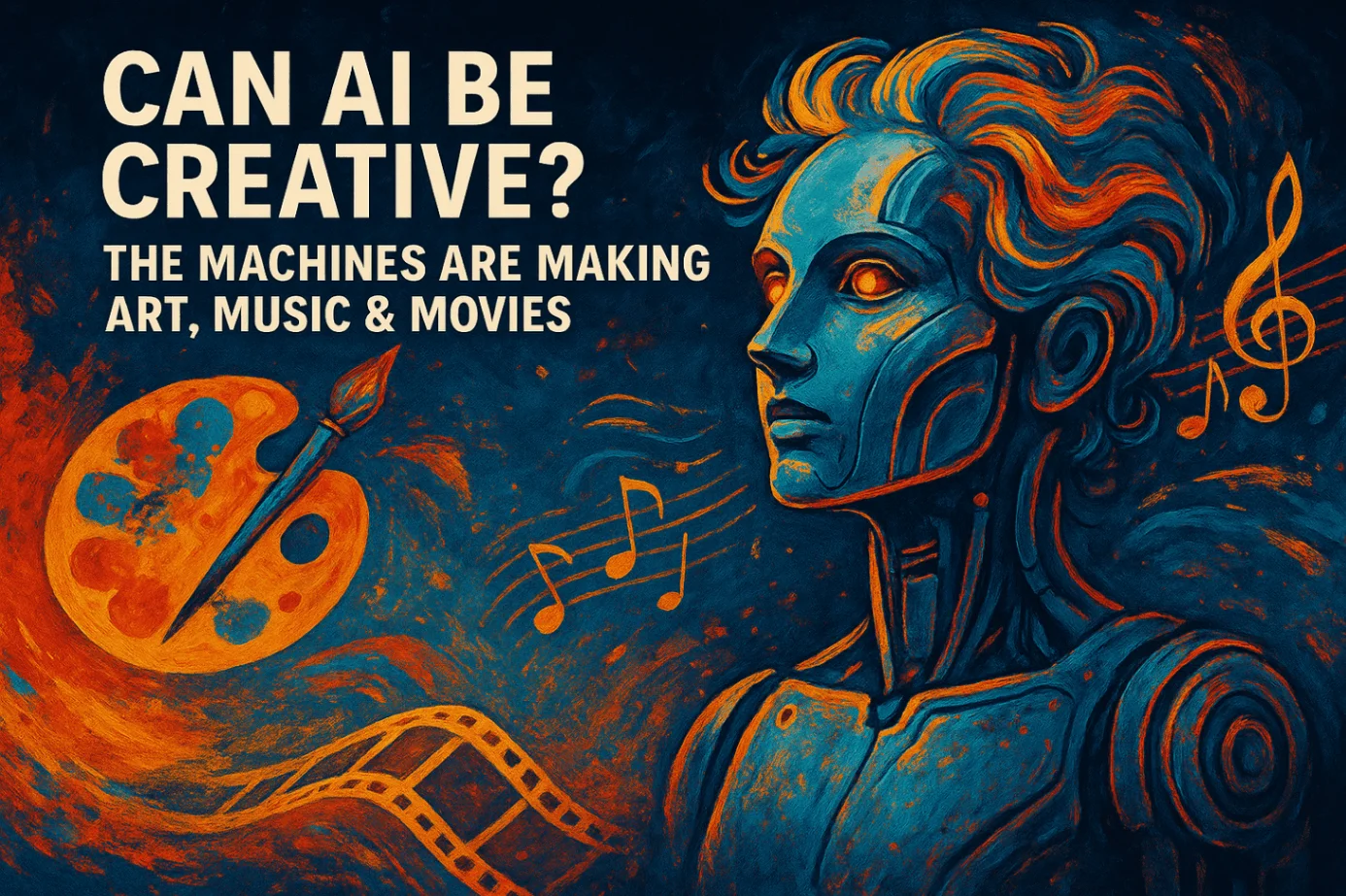
Agentic AI
Explaining agentic ai in a few simple paragraphs

Visitors and officials at UAE AI Week 2025 witnessed firsthand how the nation is positioning itself as a global AI hub.
In April 2025, Dubai hosted the inaugural UAE AI Week, a week-long festival that drew over 10,000 participants from more than 100 countrieslinkedin.com
. Under the patronage of Sheikh Hamdan bin Mohammed Al Maktoum, the event spanned high-level summits, public exhibitions, and even school programs. The goal? Accelerate AI adoption across industries and cement the UAE’s status as a leading AI hub. From the closed-door AI Retreat at the Museum of the Future to the open Dubai AI Festival, the week signaled a paradigm shift. International tech giants (Microsoft, Google, IBM, Meta and more) rubbed shoulders with local agencies and startups, all emphasizing AI’s transformative potential. The excitement was palpable – a AED 1 million national Prompt Engineering Championship even crowned top AI talent in a live competitionweek.dub.ai
. UAE AI Week 2025 was not just a tech conference; it was a statement that the UAE is ushering in a new era of AI – one that balances global collaboration with local empowerment.
A core theme was how leadership is steering AI with bold strategies and policies. Omar Sultan Al Olama, UAE’s Minister of State for AI, set the tone by stressing the nation’s ethos of “acceleration” – rapidly implementing AI “in the best way possible” without compromising regulationentrepreneur.com
. During the week, the Dubai government rolled out an official AI Policy for Government Entities alongside the first Dubai State of AI Reportentrepreneur.com
. These highlighted dozens of operational AI use cases in public services – from predictive healthcare to AI-driven urban planning – and projected a AED 235 billion economic impact by 2030 (about 14% of GDP) if AI adoption continues apaceentrepreneur.com
. Another study unveiled, surveying over 1,500 Dubai government employees, found 97% believe generative AI has a positive impact on their work, with 89% calling AI skills essential for public servantsentrepreneur.com
. This optimism is backed by accountability: Al Olama announced every government department will now be “evaluated on how effectively they use AI”, underscoring that AI must tangibly improve quality of life for UAE citizenscircuit.news
. From Dubai’s Roads and Transport Authority (RTA) came a sweeping AI Strategy 2030 blueprint with 81 projects across 6 pillars aimed at smart mobility and smarter serviceslinkedin.com
. A cornerstone: intelligent traffic systems projected to cut travel times by 20–30% through AIlinkedin.com
. These initiatives illustrate a balanced approach – enthusiastic innovation with guardrails. Dubai even launched an “AI Seal” program to certify trustworthy AI systems, ensuring ethics and transparency keep pace with deploymentlinkedin.com
. The message was clear: the UAE government is all-in on AI, pairing visionary projects with policies to guide them responsibly.
If data is the new oil, the UAE is building massive tanks at home. During AI Week, a headline announcement was a AED 2 billion (≈$545 million) hyperscale data center to be built by Dubai’s telco du in partnership with Microsoftlinkedin.com
. Sheikh Hamdan personally hailed this project as “a significant investment in digital infrastructure” that reinforces Dubai’s tech leadershipdatacenterdynamics.com
. Microsoft will be the anchor tenant, indicating that while global cloud players are involved, the infrastructure itself will reside on UAE soildatacenterdynamics.com
. This aligns with a broader push for sovereign cloud capacity – earlier in the year Abu Dhabi partnered with Microsoft and G42’s new Core42 company to develop AI infrastructure on a UAE sovereign clouddatacenterdynamics.com
. In practice, that means sensitive data and AI workloads can be handled locally under national jurisdiction, addressing data sovereignty concerns.
It’s not just about giant data centers either. Dubai Electricity & Water Authority (DEWA), a strategic partner of AI Week, announced it aims to be the world’s first “AI-powered” utilitytahawultech.com
. DEWA’s CEO unveiled a roadmap to embed AI across power grid operations to boost efficiency and resiliencetahawultech.com
. In his words, “AI is essential to our digital transformation… we launched a strategic roadmap for DEWA to become the world’s first AI-powered utilities provider”tahawultech.com
. This kind of integration hints at edge AI in action – think smart meters, predictive maintenance, and grid automation running on AI models close to the source of data. The focus on local infrastructure, from cloud to edge, underscores the UAE’s priority on data control and low-latency AI services. While the cloud isn’t going away – indeed, many solutions announced still leverage cloud computing – the trend is a shift toward localized capacity. In this new era, an AI application might run on a UAE-based cloud region or even on-device at the edge, rather than exclusively in a far-off data center. This blend of local and cloud resources is poised to give UAE organizations more control over performance, privacy, and compliance.
UAE AI Week 2025 wasn’t just about government and big tech – it also put a spotlight on homegrown AI talent and startups. A flurry of product launches showed that local companies are building solutions tailored to regional needs. For example, Dubai-based Huspy, a proptech startup, unveiled the GCC’s first AI-powered mortgage chatbot on WhatsAppentrepreneur.com
. This chatbot can converse in Arabic and English, streamlining home financing questions via the region’s favorite messaging app. “More than just a tech milestone – it’s a step toward a fully digital, frictionless home financing experience,” said Huspy’s CEO, tying the innovation to the UAE’s vision for AI in everyday servicesentrepreneur.com
. In the entertainment realm, The Game Company (TGC) – a Dubai startup – launched an AI-driven cloud gaming platform aligned with the Dubai Gaming Program 2033entrepreneur.com
. TGC’s platform uses custom AI to optimize graphics and latency, letting users play over 1,300 high-end games on any device with no console requiredentrepreneur.com
. Impressively, during its testing phase the platform onboarded 10,000 gamers out of 43,000 sign-ups, signaling strong demandentrepreneur.com
. TGC’s founder proudly called it “a homegrown product setting a new global benchmark,” built with support from Dubai’s tech ecosystementrepreneur.com
.
Beyond these startups, the UAE’s broader local AI model development efforts were evident in conversations. The country has been investing heavily in its own AI research. Just last year, Abu Dhabi’s G42 (the AI conglomerate) and the Mohamed Bin Zayed University of AI (MBZUAI) introduced Jais, a bilingual large language model named after the UAE’s tallest mountain. Initially 13 billion parameters, Jais was trained on Arabic and English data and open-sourced to spur local AI applications. By mid-2024, they expanded it to Jais-70B, a powerful 70-billion-parameter model aimed at Arabic NLP tasksen.incarabia.com
. G42 didn’t stop there – it released a whole suite of 20 Arabic AI models ranging from a tiny 590 million-parameter version (small enough to run on a laptop) up to the full 70B modelen.incarabia.com
. This means developers can choose a model that fits their needs, even running AI locally on modest hardware if neededen.incarabia.com
. Likewise in 2023, the UAE’s Technology Innovation Institute open-sourced its Falcon-40B model, which topped global benchmarks and was made royalty-free for all usersbusinesswire.com
. A larger Falcon 180B followed, underscoring the UAE’s commitment to contribute world-class models to the open community. These homegrown AI achievements, while not all announced at the Dubai event, form the essential backdrop. They ensure that the UAE AI ecosystem isn’t just consuming foreign AI models – it’s building its own. During AI Week, Meta’s MENA policy director even praised the UAE’s “ambitious government initiatives and homegrown talent”, and highlighted alignment on open-source ecosystems that make AI advancements accessible to alltahawultech.com
. From enterprise AI solutions to Arabic language models, UAE AI Week celebrated this momentum of local innovation driving the AI scene.
Empowering people is at the heart of making AI local. To truly run AI locally, a nation needs skilled developers, researchers, and users. Recognizing this, UAE AI Week featured big moves in AI education and training. Sheikh Hamdan bin Mohammed officially launched the Dubai AI Academy during the week – an initiative set to train 10,000 emerging leaders and entrepreneurs in AI skillslinkedin.com
. The Academy will offer courses on everything from machine learning and data science to AI ethics, ensuring a pipeline of talent that understands both the technology and its responsible use. It’s a collaborative effort, backed by the Dubai Future Foundation and partners, and part of a wider strategy to “double the positive impact of AI” by equipping youth and professionals with know-how. The week also saw new partnerships inked between Dubai’s innovation hubs (like DFF, Dtec, in5) and industry, aimed at giving AI startups the support and infrastructure to scale from Dubailinkedin.com
. In parallel, sector-specific upskilling was highlighted. The Dubai Health Authority announced an AI Literacy Framework (ALiF) for healthcare workers, including an “AI Launchpad” program to train doctors and staff in applying AI to patient care and medical researchlinkedin.com
. This initiative acknowledges that to fully leverage AI in hospitals, you need both the tech and the human expertise – radiologists who can use AI diagnostics, administrators who can deploy AI scheduling, etc. It’s about building a workforce fluent in AI. Other educational milestones coincided with the event: for instance, the University of Birmingham Dubai launched the emirate’s first PhD program in Artificial Intelligence, underscoring commitment to advanced local research training. And MBZUAI in Abu Dhabi continues to attract top global faculty and students, producing research tailored to regional needs.
Crucially, the private sector is also investing in skilling. Microsoft, as a key participant of AI Week, reiterated its pledge to skill 1 million UAE residents in AI by 2027tahawultech.com
– through courses, certifications, and its global AI initiatives. These efforts create a broad base of AI-literate citizens and developers who can build and run AI solutions locally. The excitement reached even younger minds: during the week, Dubai ran an “AI in Schools” program and students premiered short films on AI’s impact, asking tough questions about ethics and controllinkedin.com
. The takeaway is that AI Week wasn’t just a talk-shop; it actively involved and inspired the community to learn and participate. By prioritizing education and upskilling, the UAE is ensuring that its grand AI ambitions have the human capital to back them up. This focus on people power means the innovations sparked today will be sustained and expanded by a new generation of local AI leaders.
While UAE AI Week 2025 celebrated local AI advances, it also acknowledged that local doesn’t mean going it alone. In fact, the event illustrated a careful balance between embracing global tech partnerships and asserting regional autonomy in AI. Many of the week’s headline initiatives were collaborative: the du-Microsoft data center deal brings one of the world’s biggest cloud providers physically into the UAEdatacenterdynamics.com
, and the presence of companies like OpenAI, Google, NVIDIA, IBM as event partners showed the UAE’s openness to global innovationtahawultech.com
. These collaborations are strategic. As Khalfan Belhoul, CEO of Dubai Future Foundation, noted, having public and private sector leaders from around the world convene in Dubai “bridges visionary policymaking with real-world innovation”tahawultech.com
. The UAE isn’t simply importing solutions, though – it’s influencing them. Consider that OpenAI’s CEO Sam Altman visited the UAE and G42 partnered with OpenAI to tailor AI models for the regiong42.ai
. Or that Meta is working with local institutions on open-source initiatives (like the LLaMA-based accelerator mentioned)tahawultech.com
. These indicate that global players see the UAE as a vital testbed and market for AI, one that demands respect for its culture and data independence.
At the same time, officials here remain pragmatic about the cloud. They acknowledge that key AI services – especially those requiring massive computing power – will still run in big data centers (which might be locally situated Azure regions, G42’s supercomputers, etc.). The difference now is those resources are increasingly within the UAE’s borders and influence. The concept of “sovereign cloud” comes into play: cloud infrastructure operated in partnership with government or local entities to ensure compliance with national laws and preferencesdatacenterdynamics.com
. In practice, an Emirati bank or hospital can use AI software from a U.S. tech firm, but have the data stay in a UAE data center – getting the best of both worlds. The tone at AI Week was optimistic but measured; leaders are enthusiastic about AI’s potential, yet cognizant of risks. Ethics, safety, and regulation were frequent topics in panels. For instance, discussions were held about the upcoming UAE AI regulations and how to certify AI solutions (hence the AI Trust Seal initiative)linkedin.com
. This balanced approach – “enthusiastic but critical where needed” – was perhaps best summed up by one theme of the week: innovation, regulation, and acceleration are all needed in harmony. The UAE’s message is that it will work with global tech companies, but on its own terms, to ensure AI benefits local society and economy. This collaborative yet sovereign stance is a blueprint other countries may follow as they seek to harness AI.
UAE AI Week 2025 offered a glimpse into a future where AI is everywhere in society – but also very much grounded locally. For a platform like RunAILocal, which champions the idea of building, sharing, and running AI projects locally, the event’s takeaways are especially inspiring. We saw a nation investing in the tools (infrastructure, models) and the people (skills, talent) needed to democratize AI. We saw local startups proving that you can create world-class AI products in your own backyard. And we saw leaders insist that AI’s value must ultimately be measured by how it improves lives here at home, not just by tech hype. This resonates strongly with our mission at RunAILocal – empowering developers everywhere to innovate right where they are, using local data, edge devices, and open-source models to solve real problems.
As the UAE enters this new era of local AI empowerment, the invitation is open to all of us. Whether you’re in the Emirates or anywhere else in the world, the call is to start building AI solutions that matter to your community. RunAILocal invites developers and AI enthusiasts to take this momentum forward: share your own local AI projects, ideas, and insights with our community. Did AI Week spark an idea for a decentralized app or a novel edge AI use-case? Are you working on an open-source model tuned for your language or industry? We want to hear about it. By publishing your project or blog post on RunAILocal, you can reach a global audience that, like the UAE, believes in shaping AI’s future from the ground up. The excitement of UAE AI Week 2025 doesn’t have to end – let’s keep that spirit alive. Join us in empowering the next wave of local AI innovation. Share your story, start a discussion, and be a part of this new era where AI is truly run local.
References:

Explaining agentic ai in a few simple paragraphs

How to Run AI Locally using OLLAMA

AI is no longer just a number cruncher—it’s creating music, art, and films. From Beatles songs to award-winning AI paintings, this post explores how machines are reshaping creativity and what it means for the future of human expression. Are we ready for this artistic revolution?
Comments (1)
Joudi
Insightful read, thanks for sharing.
Please log in to comment.